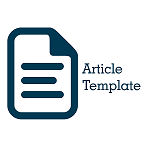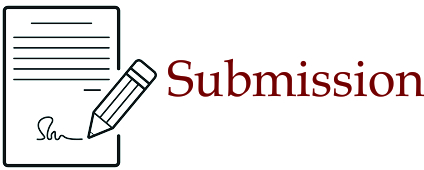Implementation of Islamic Boarding School Socio-Cultural Management-Based Curriculum in Developing of Islamic Educational Institutions Quality
Abstract
The design and implementation of the educational curriculum must be adapted to the socio-cultural conditions of an educational institution. Therefore, in implementing the curriculum, it is better to use appropriate socio-cultural management so that quality development goes well even though it is in educational institutions that have a strong religious system or known as pesantren. The purpose of this research is to know the planning, implementation and evaluation of curriculum based on socio-cultural management in the area of pesantren-based social institutions. This research is a qualitative with the type of case study. Sources of data used are primary and secondary. Data collection techniques in the form of observation and interviews. Data analysis used qualitative data analysis according to Miles and Huberman. The result of this research is that curriculum planning carried out by MTs Nurul Iman Garum is carried out with a process towards a better direction in terms of learning and institutions. In addition, the implementation of the curriculum includes checking teacher readiness, the learning process is supervised by the head of the madrasa, there is an instillation of Islamic values in the learning process, implementing the ubudiyah program, the tahfidz program or additional tutoring. For the evaluation carried out by the MTs Nurul Iman Garum institution, namely; there are two evaluations to measure students' abilities, namely summative and formative evaluations.
Keywords
Full Text:
PDFReferences
Akala, B. M. (2021). Revisiting education reform in Kenya: A case of Competency Based Curriculum (CBC). Social Sciences & Humanities Open, 3(1), 100107. https://doi.org/10.1016/j.ssaho.2021.100107
Al-Mawee, W., Kwayu, K. M., & Gharaibeh, T. (2021). Student’s Perspective on Distance Learning During COVID-19 pandemic: A case study of Western Michigan University, United States. International Journal of Educational Research Open, 100080. https://doi.org/10.1016/j.ijedro.2021.100080
Barghi, R., Zakaria, Z., Hamzah, A., & Hashim, N. H. (2017). Heritage education in the Primary School Standard Curriculum of Malaysia. Teaching and Teacher Education, 61, 124–131. https://doi.org/10.1016/j.tate.2016.10.012
Bizimana, B., Ampofo, S. Y., Ndayambaje, I., Njihia, S. M., Somuah, B. A., & Guantai, H. K. (2020). Influence of students’ learning experiences on involvement in alma mater in selected Ghanaian, Kenyan and Rwandan Universities. Social Sciences & Humanities Open, 2(1), 100026. https://doi.org/10.1016/j.ssaho.2020.100026
Caetano, G. (2019). Neighborhood sorting and the value of public school quality. Journal of Urban Economics, 114, 103193. https://doi.org/10.1016/j.jue.2019.103193
Cooper, J., Olsher, S., & Yerushalmy, M. (2021). Empirical reconstruction of learning progressions based on teachers’ tagging of didactic metadata. The Journal of Mathematical Behavior, 61, 100833. https://doi.org/10.1016/j.jmathb.2020.100833
Cuesta, J. I., González, F., & Larroulet Philippi, C. (2020). Distorted quality signals in school markets. Journal of Development Economics, 147, 102532. https://doi.org/10.1016/j.jdeveco.2020.102532
de Ruiter, J. A., Poorthuis, A. M. G., & Koomen, H. M. Y. (2021). Teachers’ emotional labor in response to daily events with individual students: The role of teacher–student relationship quality. Teaching and Teacher Education, 107, 103467. https://doi.org/10.1016/j.tate.2021.103467
Depdiknas. (2001). Manajemen Peningkatan Mutu Berbasis Sekolah, Buku 1 Konsep dan Pelaksanaan. Jakarta: Dirjen Dikdasmen.
Fajri, K. N. (2019). Proses Pengembangan Kurikulum. ISLAMIKA, 1(2), 35–48. https://doi.org/10.36088/islamika.v1i2.193
Farid, A., & Lamb, M. (2020). English for Da’wah? L2 motivation in Indonesian pesantren schools. System, 94, 102310. https://doi.org/10.1016/j.system.2020.102310
Fekih Zguir, M., Dubis, S., & Koç, M. (2021). Embedding Education for Sustainable Development (ESD) and SDGs values in curriculum: A comparative review on Qatar, Singapore and New Zealand. Journal of Cleaner Production, 319, 128534. https://doi.org/10.1016/j.jclepro.2021.128534
Habibah, R., Salsabila, U. H., Lestari, W. M., Andaresta, O., & Yulianingsih, D. (2020). Pemanfaatan Teknologi Media Pembelajaran di Masa Pandemi Covid-19. Trapsila: Jurnal Pendidikan Dasar, 2(02), 1. https://doi.org/10.30742/tpd.v2i2.1070
Hakan, K., & Seval, F. (2011). CIPP evaluation model scale: Development, reliability and validity. Procedia - Social and Behavioral Sciences, 15, 592–599. https://doi.org/10.1016/j.sbspro.2011.03.146
Hamalik, O. (2008). Manajemen Pengembangan Kurikulum. Bandung: PT Remaja Rosdakarya.
Hermawan, Y. C., Juliani, W. I., & Widodo, H. (2020). Konsep Kurikulum dan Kurikulum Pendidikan Islam. Jurnal MUDARRISUNA: Media Kajian Pendidikan Agama Islam, 10(1), 34–44. https://doi.org/10.22373/jm.v10i1.4720
Hoque, M. E. (2017). Three Domains of Learning: Cognitive, Affective and Psychomotor. The Journal of EFL Education and Research (JEFLER), 2(2), 45–51.
Husain, M. Z., Hasan, A., Wahab, N. B. A., & Jantan, J. (2015). Determining Teaching Effectiveness for Physical Education Teacher. Procedia - Social and Behavioral Sciences, 172, 733–740. https://doi.org/10.1016/j.sbspro.2015.01.426
Issah, M. (2018). Change Leadership: The Role of Emotional Intelligence. SAGE Open, 8(3), 2158244018800910. https://doi.org/10.1177/2158244018800910
Lukitasari, F. (2017). Implementasi Kurikulum Pendidikan Berbasis Budaya dalam Pengembangan Karakter Anak di TK Pedagogia (Skripsi, Fakultas Ilmu Pendidikan). Fakultas Ilmu Pendidikan, Yogyakarta. Diambil dari https://eprints.uny.ac.id/52655/
Miles, M. B., & Huberman, A. M. (1994). Qualitative Data Analysis (Second Edition). California: SAGE Publication Inc.
Mousa, M., Massoud, H. K., Ayoubi, R. M., & Abdelgaffar, H. A. (2020). Should responsible management education become a priority? A qualitative study of academics in Egyptian public business schools. The International Journal of Management Education, 18(1), 100326. https://doi.org/10.1016/j.ijme.2019.100326
Muttaqin, M. E. (2020). Evaluasi Kurikulum Pendidikan Islam. Prosiding Nasional, 3, 171–180.
Nachatar Singh, J. K., & Jamil, H. (2021). International education and meaningful contributions to society: Exploration of postgraduate international students’ perspectives studying in a Malaysian research university. International Journal of Educational Development, 81, 102331. https://doi.org/10.1016/j.ijedudev.2020.102331
Ramírez-Rueda, M. del C., Cózar-Gutiérrez, R., Roblizo Colmenero, M. J., & González-Calero, J. A. (2021). Towards a coordinated vision of ICT in education: A comparative analysis of Preschool and Primary Education teachers’ and parents’ perceptions. Teaching and Teacher Education, 100, 103300. https://doi.org/10.1016/j.tate.2021.103300
Rosali, E. S. (2020). Aktifitas Pembelajaran Daring pada Masa Pandemi Covid-19 di Jurusan Pendidikan Geografi Universitas Siliwangi Tasikmalaya. GEOSEE, 1(1), 21–30. Diambil dari https://jurnal.unsil.ac.id/index.php/geosee/article/view/1921
Rusman. (2012). Manajemen Kurikulum. Jakarta: Rajawali Press.
Sadoughi, M., & Hejazi, S. Y. (2021). Teacher support and academic engagement among EFL learners: The role of positive academic emotions. Studies in Educational Evaluation, 70, 101060. https://doi.org/10.1016/j.stueduc.2021.101060
Suryosubroro, B. (2004). Manajamen Pendidikan di Sekolah. Jakarta: Rineka Cipta.
Syukur, F. (2013). Manajemen Pendidikan. Semarang: PT PUSTAKA RISKI PUTRA.
Treffgarne, C. B. W. (2019). Joined-up government? Insights from education during DFID’s first decade. International Journal of Educational Development, 68, 45–55. https://doi.org/10.1016/j.ijedudev.2019.04.009
Triwiyanto, T. (2015). Manajemen Kurikulum dan Pembelajaran. Jakarta: Bumi Aksara.
Umar, M., & Ismail, F. (2018). Peningkatan Mutu Lembaga Pendidikan Islam (Tinjauan Konsep Mutu Edward Deming dan Joseph Juran). Jurnal Ilmiah Iqra’, 11(2). https://doi.org/10.30984/jii.v11i2.581
Usman, H. (2014). Manajemen Teori, Praktik dan Riset Pendidikan. Jakarta: PT Bumi Aksara.
Werdiningtyas, R., Wei, Y., & Western, A. W. (2020). Understanding Policy Instruments as Rules of Interaction in Social-Ecological System Frameworks. Geography and Sustainability, 1(4), 295–303. https://doi.org/10.1016/j.geosus.2020.11.004
DOI: https://doi.org/10.18860/jmpi.v7i2.15896
Refbacks
- There are currently no refbacks.
Copyright (c) 2022 Chusnul Chotimah; Nur Isroatul Khusna; Saiful Amin; Catur Palupi

This work is licensed under a Creative Commons Attribution-ShareAlike 4.0 International License.
Fakultas Ilmu Tarbiyah dan Keguruan
Universitas Islam Negeri Maulana Malik Ibrahim Malang
Jalan Gajayana 50 Malang 65144, Jawa Timur, Indonesia
Telp/Fax: +62341-552398 Email: jmpi@uin-malang.ac.id

This work is licensed under a Creative Commons Attribution-ShareAlike 4.0 International License.
INDEXED BY:















